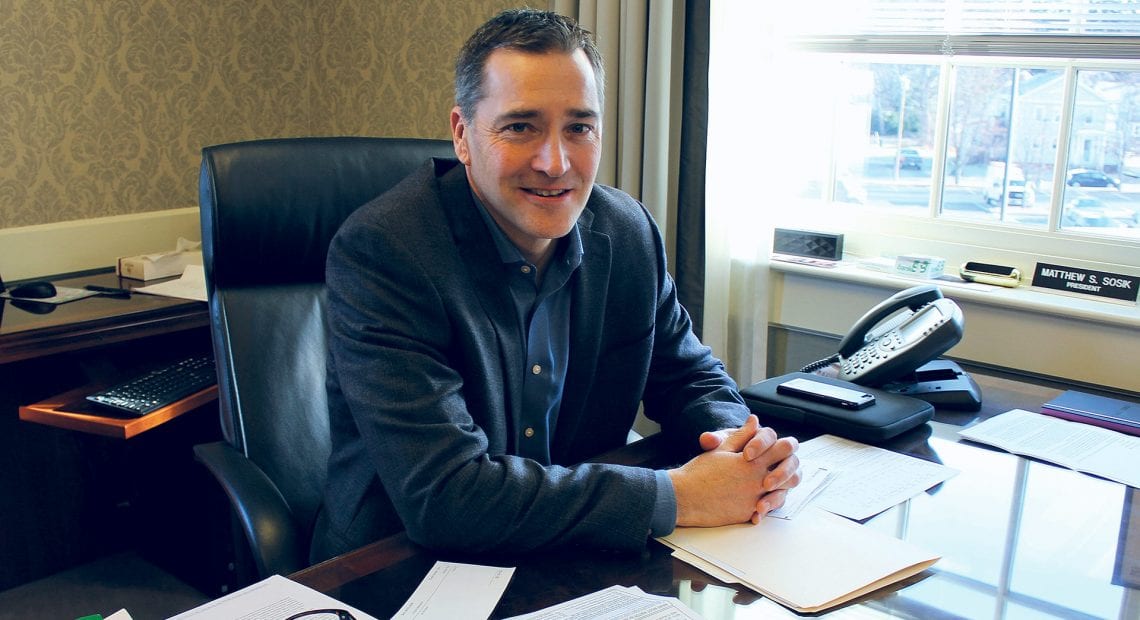Language Course
By Timothy M. Netkovick, Esq.
Big changes may be on the horizon regarding non-competition agreements. For the first time, there may be legal restrictions on the terms of those agreements, and, in a major development, employers may be required to pay former employees during the non-compete period.
This is the result of a bill passed by the Massachusetts state legislature that, if signed by Gov. Baker, will mandate the timing of non-competition agreements, the employees who can enter into those agreements, and certain language within the agreement.

Timothy M. Netkovick, Esq
Employers use non-competition agreements in order to protect their business interest in the event an employee leaves the company and begins to work for a competitor. In that scenario, the now former employee could be motivated to entice clients to their new place of business or to use confidential information of the former employer for the benefit of a competitor.
Historically, there has been little restriction on the contents of a non-competition agreement other than what terms would be enforced by a court in the event of a dispute. However, that may be about to change. If signed by Gov. Baker, the bill states that a non-competition agreement will need to include:
• A reasonable geographic reach in relation to the interest sought to be protected;
• A reasonable scope of the activities prevented;
• That the agreement be supported by a garden-leave clause (more on that later); and
• That the agreement comply with public policy.
The new bill is the result of the Legislature’s perception that non-competition agreements have become overused in the Commonwealth. As such, the bill requires that certain steps be taken at each stage of the employment process. At the outset, the bill mandates that non-competition agreements are unenforceable against:
• Nonexempt employees under the Fair Labor Standards Act (hourly workers);
• Interns;
• Employees terminated without cause or due to layoff; and
• Employees under 18 years old.
In a typical scenario, non-competition agreements are entered into at the beginning of the employment relationship, and can be included as part of the employee’s ‘on boarding’ documents, along with a copy of the Employee Handbook and other standard documents.
The Legislature’s apparent concern is that an employee could sign a non-competition agreement without understanding what they are signing.
In order to protect employees, the bill requires that a non-competition agreement must be entered into by the earlier of a formal offer of employment or 10 business days before the start of employment. In addition, the agreement must be signed by both the employer and the employee and, further, must include a statement that the employee has the right to consult with counsel of their choosing prior to entering into the agreement. In effect, this makes a non-competition agreement the subject of a separate negotiation well prior to the first day of employment.
In the event the agreement is entered into after employment has started, the bill requires that there be a 10-day waiting period before the agreement becomes effective, and that it include the same statement that the employee has the right to consult with counsel of their choosing prior to entering into the agreement.
The bill further requires that “fair and reasonable consideration” be exchanged in order to support the agreement. The bill doesn’t state what “fair and reasonable consideration” is, however, it specifically states that “fair and reasonable consideration” must be more than just the employee’s continued employment.
Since there is no definition of “fair and reasonable consideration,” there can be a variety of potential interpretations as to what that phrase means. Could it be a raise for the employee to support the agreement? A bonus? Unfortunately, the legislation is silent. However, it is clear from the overall text of the legislation that the intent is for more than just nominal consideration, i.e. $1.00.
For the most part, once the agreement is signed, the bill adapts the standards typically used by Massachusetts courts in enforcing non-competition agreements in terms of duration and scope. For instance, Massachusetts courts have typically held that non-competition agreements are enforceable so long as they are reasonable in time and scope.
Courts have also typically interpreted non-competition agreements narrowly in terms of enforcing the agreement for a short period of time and limited to the areas where the employee actually performed services for the former employer. In addition, several professions are exempt from non-competition agreements due to public policy reasons, such as doctors and lawyers.
The major potential change is the requirement for employers to pay their former employees during the non-compete period. Under the bill, the agreement must be supported by a “garden leave clause” or other mutually agreed upon consideration. The bill defines a “garden leave clause” as 50% of the employee’s highest annualized salary within the two years preceding termination. In effect, employers will be required to pay the former employee not to work during the non-compete period.
In addition to the other provisions put in place, it seems that the Legislature’s goal is to provide an additional disincentive for an employer to enter into a noncompetition agreement unless the employer views it as absolutely necessary for a legitimate business interest. Given the other restrictions in terms of the category of employees specifically excluded from entering into non-competition agreements, it’s clear that the Legislature intends for non-competition agreements to apply to only executive or upper level management.
If enacted, these new requirements will require employers to review and modify their existing non-competition agreements. Employers will want to monitor the situation and consult their employment counsel regarding any revisions that may be necessary before they seek to enter into new agreements, or run the risk that those agreements will be unenforceable when the employer needs them the most.
Timothy M. Netkovick, an attorney at Royal, P.C., has 15 years of litigation experience. He has successfully tried several cases to verdict. In addition to his trial experience, he has specific experience in handling labor and employment matters before a variety of administrative agencies including the Mass. Commission Against Discrimination, Equal Employment Opportunity Commission, National Labor Relations Board, and Department of Industrial Accidents. He also assists employers with unionized workforces during collective bargaining, at arbitrations, and with respect to employee grievances and unfair labor practice charges; (413) 586-2288.











